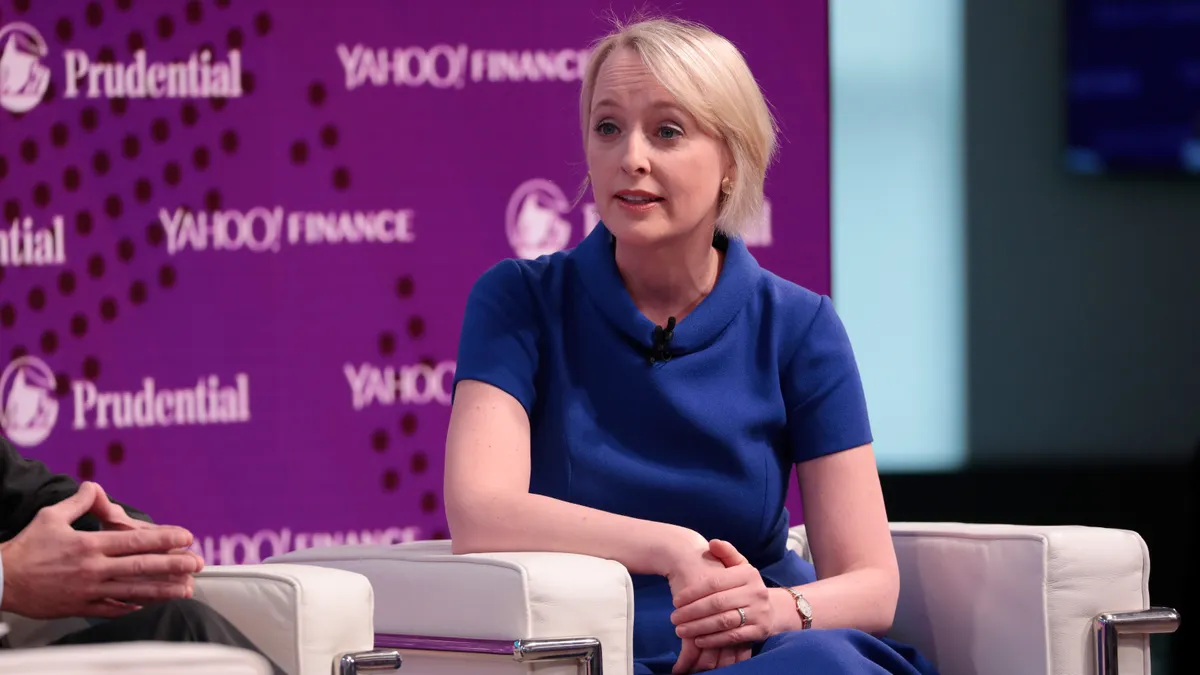Don’t wait until retirement to throw your hat in the ring for a board seat at a for-profit company; take steps while you’re still in your in-house or outside counsel role, the head of an empowerment organization for women executives says.
Despite advances, women remain under-represented on boards and corporations are poorer for it because diversity is a business plus, especially when board members are executives who can bring their legal training into the mix, says Maria Doughty, CEO of The Chicago Network and a veteran in-house counsel.
“Lawyers are analytical thinkers, risk assessors and skilled in communication and problem solving,” said Doughty, whose corporate legal career included 20 years at Allstate. “It’s helpful to have someone who can manage conflict and assess in an objective way. That’s how lawyers are trained.”
Women attorneys and other executives have made deep inroads into nonprofit boards but only about a third of corporate boards have women on them. And the women who make it onto corporate boards tend to get selected over and over again, because they’re the ones who are top of mind when there’s an opening and board members and recruiters are asked to find a replacement.
“We tend to see the same people being tapped,” Doughty told Legal Dive. “So much of board service is who you know.”
It’s good to let recruiters know of your interest, but these placement professionals aren’t the primary way board candidates are found; in most instances, the chair or other business leader asks existing board members if they know of anyone to fill a vacancy, so networking remains the main path.
In some ways, women lawyers face an additional hurdle, because many boards are reluctant to ask a lawyer to join them, in part because they believe that role is already being served by the company’s general counsel.
“People think, we already have a GC,” said Doughty, whose in-house roles included duties as corporate secretary. “But a GC who is advising the board is not the same as a person sitting in the boardroom as a lawyer, offering their experience, advice and counsel.”
For one thing, the general counsel has a duty to the management team, so their perspective isn’t going to be quite the same as that of a lawyer sitting on the board as an independent director.
Doughty thinks the hesitation to name lawyers to board seats is easing, in part because of the increasing regulatory complexity that companies face.
“Look at what the FTC is doing,” she said. “I guarantee you there are a lot of conversations in boardrooms about noncompete agreements [which the agency is set to prohibit]. As a lawyer, I’m familiar with these agreements. I don’t need to bring an expert in to tell me, so I think that’s an important shift in why we have more lawyers being considered.”
Because of the hurdles they face, The Chicago Network has been encouraging women to reach out to a recruiter or ramp up their networking while they’re still in their position. That way, their skill set is sharp and tuned to today’s challenges.
“You’ll be a better board director because of your experience and be a better leader in your own organization,” she said.
When talking about your experience to a recruiter or business leader, don’t downplay the experience you gained earlier in your career, Doughty said. It’s human nature for people to focus on what they’re doing now, because it’s fresh in their minds and most relevant to them. But if you gained experience years ago working on, say, merger deals or an IPO, don’t leave that out, even if it’s been years since you did that kind of work.
“You may not be a patent lawyer but [maybe] you have experience with a patent project,” she said. “When you worked in a law firm, Dow was your client and you were working on a patent for a new type of plastic or something. Think broadly about what you bring to the table.”
It might be the case that in-house lawyers have an advantage over lawyers who’ve spent their career in private practice because of the business experience you get working in a company. But Doughty thinks this is a mistake and might be changing a bit.
“If I were on a board and could get one of the top female senior partners at one of the top law firms, that would be a huge addition to that board,” she said. “Think about the experience they’ve had in supporting clients across multiple industries. They would be sophisticated voices in that boardroom.”
To help boost momentum for getting more women on boards, The Chicago Network has launched a database, called womenlead.io, that recruiters and business leaders can access to search for qualified candidates based on their expertise. If a company is looking to fill a seat that’s typically held by a finance person who has manufacturing company experience, they can enter those parameters into the search tool and find women executives who fit that profile. “There are 700 search filters,” Doughty said.
The group also hosts a summit that brings together women aspiring for senior-level management roles to learn what’s most on executives’ minds as a way to expand the pipeline of women executive talent.
Despite the challenges, momentum is with talented women who have something to offer boards, should they get the chance to make their case.
“There are more opportunities than people are aware of,” Doughty said. “Opportunities on public boards are what people think about, but the number of private equity firms out there that have companies is really significant. And the number of privately held companies – private equity is a subset of that. There are tens of thousands of companies. So, there are opportunities for board service, but you need to think broadly.”



















